Oct 28, 2025 10:47 AM
In Memoriam: Jack DeJohnette, 1942–2025
Jack DeJohnette, a bold and resourceful drummer and NEA Jazz Master who forged a unique vocabulary on the kit over his…
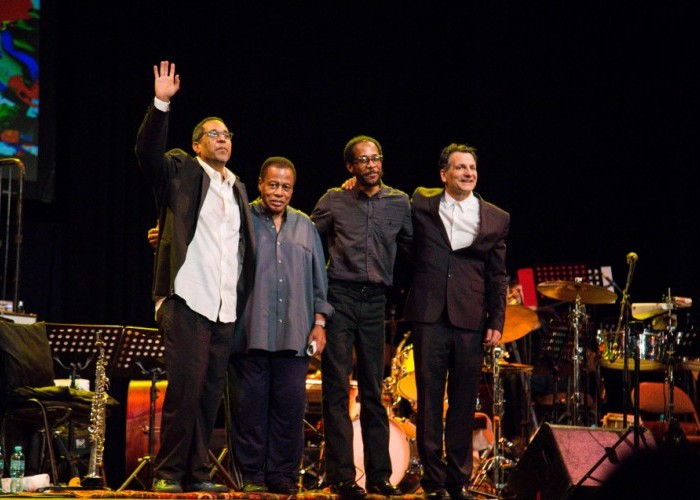
Danilo Pérez (left), Wayne Shorter, Brian Blade and John Patitucci perform at the Panama Jazz Festival in Panama City.
(Photo: Courtesy Panama Jazz Festival)The vision and determination that built the Panama Jazz Festival into a thriving institution were characterized in public comments at a festival reception this month.
“We think we’re here for a jazz festival,” Artistic Director Danilo Pérez said with a winning grin. “But we’re really here to build possibility together.”
Perez handed the mic to his wife, Executive Director Patricia Zarate Pérez. “My job is to listen to the men around me and separate fantasy from reality,” she joked, deadpan.
The couple’s harmony of dreams and practicality has grown the festival from 2003’s three-day event attended by 8,000 people to 2018’s sprawling six-day event attended by about 30,000. A team of 46 coordinators and 500 volunteers powered this year’s 15th edition, which occupied Panama City Jan. 15–20. This also is the first year that the festival exists as Panamanian law, guaranteeing annual funding and recognizing an event “that provides education and social awareness, where people of all ages, cultural and social backgrounds meet to share interdisciplinary ideas about music of the highest academic quality.”
The festival’s scope has developed along with Panama City itself. Danilo and Patricia Pérez found a powerful ally in KC Hardin, an American developer who has renovated the colonial Casco Viejo quarter while also working to preserve the neighborhood’s culture.
“The Panama Jazz Festival’s mission is to improve people’s lives through shared musical experiences,” Hardin said. “It’s about uplifting, educating and uniting. That is exactly what is needed in the neighborhoods where we work.”
Hardin built Danilo’s Jazz Club, which opened in 2014, into the boutique American Trade Hotel, and gifted another building to the Danilo Pérez Foundation, which educates young musicians.
Danilo had warm associations with the foundation building, as it once housed the conservatory where he studied as a child. But a few years ago, when a trash can in a derelict building adjacent to the foundation became a breeding ground for mosquitos, Pérez and Zarate had to convince some occupying gang members to help them fumigate the space.
“As we’ve collaborated on this festival and in Panama at large, we’ve learned to deal with resistance as something natural,” Zarate explained.
This year’s main festival site was the City of Knowledge, a former U.S. Army headquarters with the look and feel of a rigorous summer camp. The Atheneum stage featured headliners like Ran Blake and the Chucho Valdés Quartet, with other international acts taking the Global Stage in the afternoon. Amid the bustling schedule, repeat performances from several acts gave festivalgoers a good chance of catching everything: There were three opportunities to hear Patricia Zarate Pérez’s Pan-African Jazz Project, an evocative nine-piece combo of Panamanian and Egyptian musicians, and a highlight of the festival.
Along with the festival’s educational drive, which makes for lively collaborations of student and professional musicians, its most striking programming feature is globalism.
“From the very beginning, music has always been global,” Zarate said. “American music, including jazz, has African and Latin influences. Andalusian music is Spanish and African, and Africa hasn’t escaped Latin influences, either.”
The festival’s cosmopolitanism also traces to the transcultural jazz of Danilo Pérez’s 1996 album Panamonk, a project Pérez revisited twice at the festival with a stirring rhythm section of bassist Ben Street and drummer Terri Lyne Carrington.
During the day, an intergenerational crowd filled City of Knowledge workshops and panels to capacity—I couldn’t even reach the door of a reggae workshop. A panel of powerhouse jazz education leaders discussed “Alternative Pedagogies For A New Millennium,” but could have benefited from more tightly focused discussion. Panelists also announced the establishment of the Global Association for the Interconnective Arts, a promising organization that aims to cultivate young musical ambassadors.
The festival’s cultural tourism included a press visit to the Frank Gehry-designed BioMuseo, a fascinating biodiversity museum that sits like an abstract tropical bird at the Pacific mouth of the Panama Canal. A day trip to the jungle involved canoeing to an enchanting hidden waterfall for swimming, and eating and dancing at an Embera Indian Village. And though a stop at the Panama Canal’s famous Miraflores locks might seem obligatory, the early 20th-century engineering marvel inspires true admiration—as canal locks fill and empty, lift and lower for passing ships, visitors watch in silent wonder.
But the festival’s music shone brightest.
A grand gala concert at the Teatro Anayansi launched with the savvy marketing tool of a red carpet, and press thronged students and illustrious musicians alike. Gala performances included the Global Jazz Big Band playing agile arrangements by Bill Dobbins, who also conducted the ensemble. The big band gave Luciana Souza’s vocals rhythmic and melodic space to dip and soar, especially on Djavan’s lyrical samba “Flor de Lis.” In a short, potent set that included “Orbits” and “Lost,” the expressive rapport of the Wayne Shorter Quartet seemed heightened by an awareness that performance dates for the group are becoming increasingly rare. Panamanian cumbia masters Samy and Sandra Sandoval, a brother-and-sister act, closed out a dynamic, emotional night of music.
Still, larger events hovered over the festival. In early January, U.S. Ambassador to Panama and jazz superfan John Feeley announced his resignation because of his not being able to serve under President Donald Trump. “The best thing we can do is keep being the Americans we know ourselves to be,” Feeley told me at his home. “And hear every concert at the Panama Jazz Festival this week.”
It’s sage advice. Most festivals offer time apart from everyday concerns, a pleasant vacation from reality. But with its principled mission of building a stronger, more ethical culture, the Panama Jazz Festival is an engaged carnival of resistance, a passionate alternative to politics as usual. DB
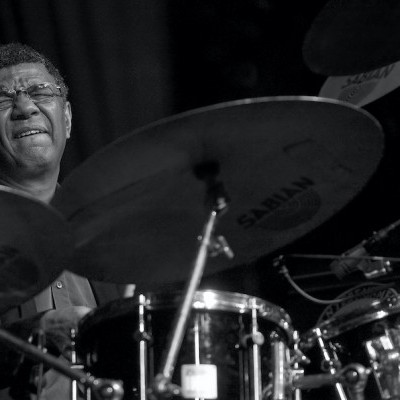
Jack DeJohnette boasted a musical resume that was as long as it was fearsome.
Oct 28, 2025 10:47 AM
Jack DeJohnette, a bold and resourceful drummer and NEA Jazz Master who forged a unique vocabulary on the kit over his…
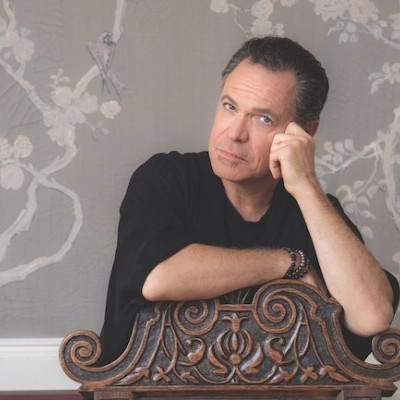
“Think of all the creative people I’m going to meet and a whole other way of thinking about music and a challenge of singing completely different material than I would have sung otherwise to my highest level in dedication to the moment,” Elling says about his Broadway run.
Sep 9, 2025 1:18 PM
Kurt Elling was back at home in Chicago, grabbing some family time in a late-June window between gigs. Sporting a smile…
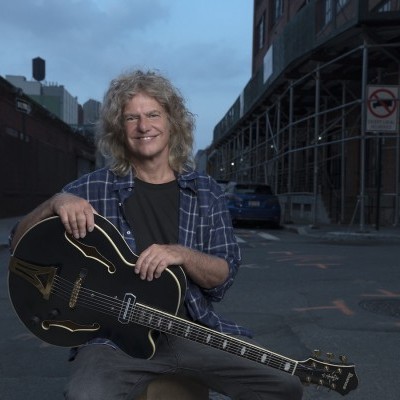
Pat Metheny will perform with his Side-Eye III ensemble at Big Ears 2026 in Knoxville, Tennessee, next March.
Sep 9, 2025 12:19 PM
Big Ears has announced the lineup for its 2026 festival, which will take place March 26–29 and include 250…
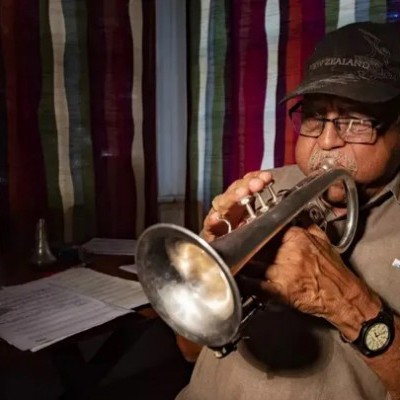
“[That’s] the thing of the beboppers,” Bradford said. “These guys were important for not only playing that wonderful music, but they knew a sort of social stance, you see?”
Sep 9, 2025 1:07 PM
It was a calm, balmy, near-perfect evening in Westwood, California, not far from UCLA, in the expansive courtyard at…
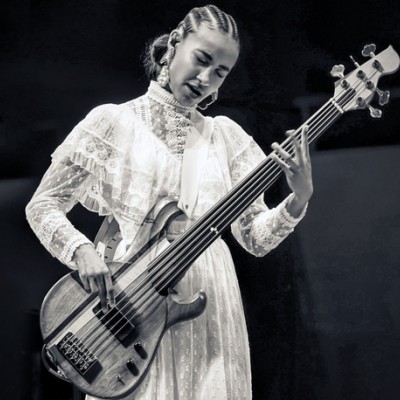
Esperanza Spalding closed an audacious Chicago Jazz Festival set with “Endangered Species.”
Sep 9, 2025 11:50 AM
The 45th Chicago Jazz Festival kicked off its headline events with two erudite individuals, Esperanza Spalding and…